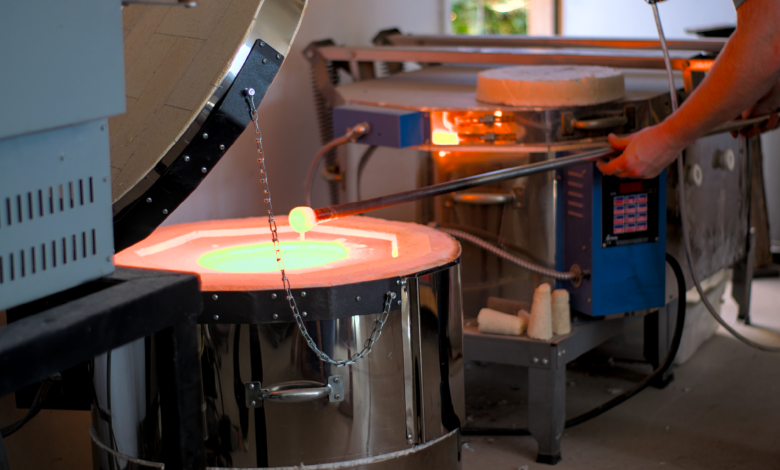What Is A Glass Melting Kiln And Why Use It?

Glass melting kiln and high-temperature furnace play a crucial role in the production of various glass products. These furnaces are designed to withstand high temperatures and provide a controlled environment for melting and shaping glass. Glass melting kilns and high-temperature furnaces come in a variety of shapes and sizes, ranging from small tabletop models to large industrial furnaces that can produce thousands of glass products per day. In this article, we will delve into the importance of glass-melting kilns and high-temperature furnaces in the glassmaking industry.
The Advantages of Glass Melting Kilns
Glass melting kiln offer several advantages to the glassmaking industry, including increased production efficiency and improved product quality. One of the main advantages of glass melting kilns is their ability to maintain a consistent temperature throughout the melting process. This ensures that the glass remains in a liquid state and can be shaped into the desired product. Additionally, the use of glass melting kilns reduces the risk of impurities in the final product, as the controlled environment of the kiln allows for the effective removal of contaminants during the melting process.
Another advantage of glass melting kilns is their ability to accommodate a wide range of glass products, from small tabletop models to large industrial kilns that can produce thousands of glass products per day. This versatility allows for the efficient production of a wide range of glass products, from small glass jars to large commercial glass containers.
Furthermore, the use of glass melting kilns enables glass manufacturers to produce products that meet specific customer requirements, such as custom shapes and sizes, unique colors, and special designs. The use of glass melting kilns also provides a safer and more controlled environment for glass production compared to traditional glassmaking methods. The controlled environment of the kiln reduces the risk of accidents and injuries, while also reducing the environmental impact of glass production by minimizing the release of harmful pollutants into the environment.
High-Temperature Furnace
High temperature furnaces offer several benefits to various industries, including the glassmaking industry. One of the main benefits of high temperature furnaces is their ability to reach and maintain high temperatures efficiently, allowing for the efficient production of high-quality products. The consistent heating provided by the furnace ensures that the temperature remains stable and that the material being heated or melted is not subjected to sudden temperature changes.
This results in improved product quality and reduced waste. Another benefit of high-temperature furnace is their versatility. These furnaces can be used in a variety of industries, including the production of metals, ceramics, and glass, and can accommodate a wide range of materials and products. High-temperature furnaces are also available in a variety of sizes, from small tabletop models to large industrial furnaces, allowing for the efficient production of a wide range of products. The use of high-temperature furnaces in the glassmaking industry allows for the production of high-quality glass products with improved durability, clarity, and consistency.
In addition to increased production efficiency and versatility, high-temperature furnaces also provide a safer and more controlled environment for production compared to traditional methods. The controlled environment of the furnace reduces the risk of accidents and injuries, while also reducing the environmental impact of production by minimizing the release of harmful pollutants into the atmosphere. The use of high-temperature furnaces also reduces the risk of fire and explosion, providing a safer working environment for employees.
The Importance of Glass Melting Kiln and High-Temperature Furnace
The importance of glass-melting kiln and high-temperature furnaces in the glassmaking industry cannot be overstated. These furnaces provide a controlled environment for melting and shaping glass into the desired product. The consistent temperature maintained by the kiln and furnace ensures that the glass remains in a liquid state and can be shaped into the desired product.
The use of high-temperature furnaces also allows for the efficient production of high-quality glass products that are strong, durable, and able to withstand the high pressure and temperature changes associated with production and transportation. The use of glass melting kilns and high-temperature furnaces is essential for the production of glass products that meet industry standards and consumer demands.




